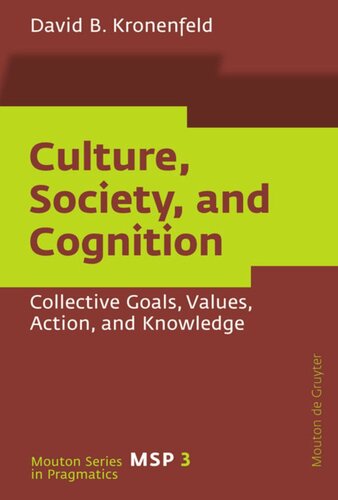

Most ebook files are in PDF format, so you can easily read them using various software such as Foxit Reader or directly on the Google Chrome browser.
Some ebook files are released by publishers in other formats such as .awz, .mobi, .epub, .fb2, etc. You may need to install specific software to read these formats on mobile/PC, such as Calibre.
Please read the tutorial at this link: https://ebookbell.com/faq
We offer FREE conversion to the popular formats you request; however, this may take some time. Therefore, right after payment, please email us, and we will try to provide the service as quickly as possible.
For some exceptional file formats or broken links (if any), please refrain from opening any disputes. Instead, email us first, and we will try to assist within a maximum of 6 hours.
EbookBell Team

4.3
98 reviewsThis theoretically motivated approach to pragmatics (vs. semantics) produces a radically new view of culture and its role vis-a-vis society. Understanding what words mean in use requires an open-ended recourse to pragmatic cultural knowledge. Cultural knowledge makes up a productive conceptual system. Members of a cultural community share the system but not all of the system's content, making culture a system of parallel distributed cognition. This book presents such a system, and then elaborates a version of "cultural models" that relates actions to goals, values, emotional content, and context, and that allows both systematic generative capacity and systematic variation across cultural and subcultural groups. Such models are offered as the basic units of cultural action. Culture thus conceived is shown as a tool that people use rather than as something deeply internalized in their psyches.